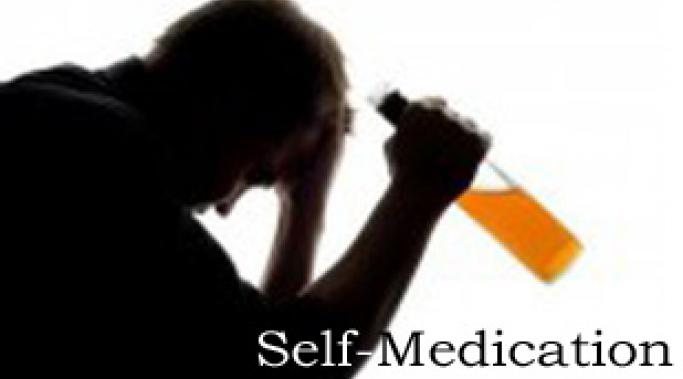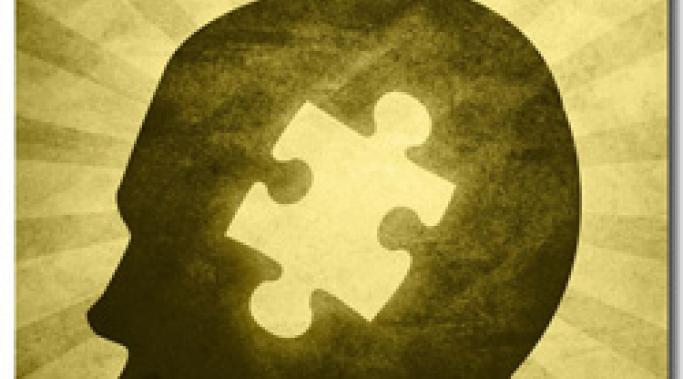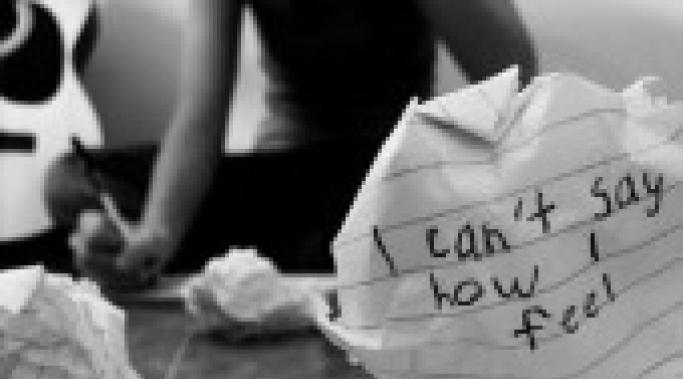Let me stress this: Do Not Self-Medicate Mental Illness. This is obvious, right? It should be simple. Why make things more complicated? Being diagnosed with mental illness is crazy enough, so why do a large portion of people, statistically, abuse drugs and alcohol?
I'm human and sometimes I hurt. Just like you do. A few years ago:
I have not slept in three days, maybe four. Sheets hang on my windows. The light stings my dilated eyes. I wince, even among the relative darkness I have created. I have not eaten in days; I drink water tainted with vitamins hoping that's enough.It's been days of drugs and of alcohol. I am surprised I have not died yet.
For many years, that was my life. That was my way of dealing with the diagnosis. I hid behind drugs and alcohol because, in my mind, I would rather be an addict and alcoholic than to be bipolar.
Managing Bipolar Disorder
It would be lovely if the diagnosis of mental illness came with a prescription for recovery that was given to all of us. Diagnosed with bipolar disorder? take this pill, you will be fine. You will be recovered! That would be nice, perfect, what a fantastic dream! Then you wake up. You take your medication. That's the reality.
Recovery is different for all of this: treatment is never the same. Some of us, once diagnosed and treated, experience no symptoms of all. On the flip side, some of us struggle on a day to day basis.
Curing mental illness is simply not possible--despite limited controversy. That's the cold and hard truth. On the flip side, we can become well and experience very little, or no symptoms at all. That is the goal. How can we pursue it?
I usually choose a specific topic for these blogs and work to describe the importance of managing and accepting mental illness. Last week, I wrote a blog focusing on recovering from and recognizing depression. This week, based on my life currently, I want to talk about stress and the impact it has on those who live with mental illness. I am really struggling with this right now.
When you are diagnosed with a mental illness, your first reaction is probably fear. Those who love you also might feel fear. After all, mental illness is stigmatized, and certainly not something anyone wants to live with. But we can, and we do. Successfully.
Defining Fear
Depression. I hate the word. Also, not in my repertoire of lovely words: consistent low mood. melancholy, apathetic, stuck, frightened, darkness, sadness. Lovely words, perhaps a thesaurus would give me two hundred more. But that is not the topic of this blog.
Defining Depression
Your psychiatrist can define depression, but in a clinical way. The language used cannot describe how a depressed person feels. Instead, person must exhibit specific symptoms: change in sleep patters, appetite, a lack of interest in previously enjoyed activities, isolation, sadness. When I tell my psychiatrist I am depressed she asks me how I feel. Often, if you are experiencing depression, it is hard to articulate your feelings. Sometimes, I tell her I do not know how I feel. I feel sad. I don't think I felt this way a couple months ago. But it's confusing. Working to compare how you felt before you started to feel down.
It seems unfair, to say the least, that when we are trying to recover from mental illness, our body can become ill as well. For a long time, I did not connect physical illness to mental illness. I believed the body and mind were separate.
I often found myself in my doctor's office. I told him I had migraines on a daily basis. He asked me if this had always been the case, and I told him no, just every few months. I get hit with serious sinus infections a few times a year, and curse my immune system. I am doing everything I should: eating healthy, exercising, taking my medication, and some vitamin's throw in for fun.
It took a long time to put the pieces together: mental illness causes unwanted physical symptoms, and not symptoms exclusively from psychiatric medication.
I hesitated to use the word war in the title. I considered using the word struggle. But war is defined by combat: You are at war with your mental illness. Sometimes, every day. Struggle means many things, but war feels appropriate. You can win a war, perhaps struggle along the way, but land on your feet nonetheless.
Yes, we have all been told that self-care is instrumental when recovering from a mental illness. We have probably been told that we need to eat a balanced diet, sleep eight hours a night, drink enough water, exercise on a regular basis, form positive relationships, frequent our psychiatrist, reach out to others in the community, take our medications, practice yoga...The list goes on. Extensively. It is worthy of a 1,000 page book.
Conventional Self-Care
I like to think of conventional self-care as prescribed self-care. It is as important as the prescriptions you take to find or maintain wellness. As stated above, the list of self-care recommendations are numerous. Let's focus on a few.
Recovering from a serious mental illness can seem impossible, insurmountable at times, and frightening as well. Because I was diagnosed with bipolar disorder at the age of twelve, drugs and alcohol became a way in which I worked to forget about the diagnosis and self-medicate it.









